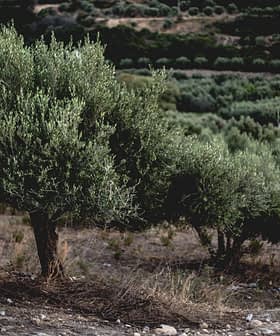Climate Change Poses Threat to Global GDP, Study Finds
New data reveals that global GDP per capita will decrease by 7.22 percent by 2100 if average global temperatures continue to rise. For several olive-producing countries in the Mediterranean basin, the figure may be much higher.
 Increases in precipitation may have a negative effect on GDP, the study found
Increases in precipitation may have a negative effect on GDP, the study foundA recent study examining the economics of climate change has concluded that the phenomenon has the potential to have long-term macroeconomic impacts across the globe.
The working paper, “Long-Term Macroeconomic Effects of Climate Change: A Cross-Country Analysis,” was published by the National Bureau of Economic Research (NBER) on August 19.
In a no-climate action-scenario, we expect the average U.S. citizen to lose about 10 percent of (his or her) income as a result.
The study, which was conducted by a team of researchers from the University of Southern California, the University of Cambridge, the International Monetary Fund (IMF) and National Tsing Hua University in Taiwan, examined the long-term macroeconomic impacts of climate change in 174 countries around the world.
The study reveals that if average global temperatures continue to rise by 0.04 degrees Celsius (0.07 degrees Fahrenheit) per year, global GDP per capita will decrease by 7.22 percent by 2100.
See Also:Climate Change NewsThis is a “business as usual” scenario where mitigation measures are not applied. However, if temperature increases are limited to 0.01 degrees Celsius (0.02 degrees Fahrenheit) per year, which is in line with the Paris Agreement, the loss would amount to only 1.07 percent.
By analyzing data from these 174 countries from 1960 to 2014, the researchers examined how labor productivity is affected by changes in temperature and rainfall. They found that “per capita real output growth” is negatively affected by temperature changes, but this is less significant for changes in precipitation.
While previous studies have maintained that global temperature increases have the most potential for negative effects in low-income countries with hot climates, this one reveals that climate change will “affect all countries, rich or poor, and hot or cold.”
“In our study, where we look at deviations of climate variable and explicitly model changes in the distribution of weather patterns; that is not only averages of climate variables but also their variability,” Kamiar Mohaddes, a co-author of the study and University of Cambridge economist, told Olive Oil Times.
“We find that deviations of climate variables (temperature and precipitation) have negative long-run growth effects for all economies, including the United States,” he added. “For instance, in a no-climate action-scenario, we expect the average U.S. citizen to lose about 10 percent of [his or her] income as a result — a substantial loss.”
Not only do rising temperatures and extreme weather events as a result of climate change create financial risks and pose a threat to economic growth to all countries worldwide, this also affects worker productivity and employment.
“Deviations of climate variables (temperature and precipitation) from their historical norm affect labor productivity,” Mohaddes said. “This can happen, for instance, when it rains nonstop or there is a drought, or when the weather is excessively hot or cold. In these conditions, workers may not be able to show up for work, or alternatively they may take longer to finish a task (in freezing conditions or excessive heat, they cannot operate normally).”
“Sometimes construction projects are put on hold, supply chains are interrupted, or agricultural activity is postponed,” he added. “These are a few examples of how labor productivity or employment levels are affected by climate change.”
The extent of the loss when it comes to macroeconomic effects can vary widely from one country to the next. According to the data presented in the working paper, the U.S. faces a potential loss of 10.52 percent. Canada stands to lose 13.8 percent; Switzerland 12 percent; India 9.9; Russia 8.93 and China 4.3 percent.
Looking at the figures for olive-producing countries, Greece could face a loss of 12.21 percent, 7.98 percent for Turkey, 7.01 percent for Italy, 6.30 percent for Spain, and only 0.53 percent for Tunisia.








